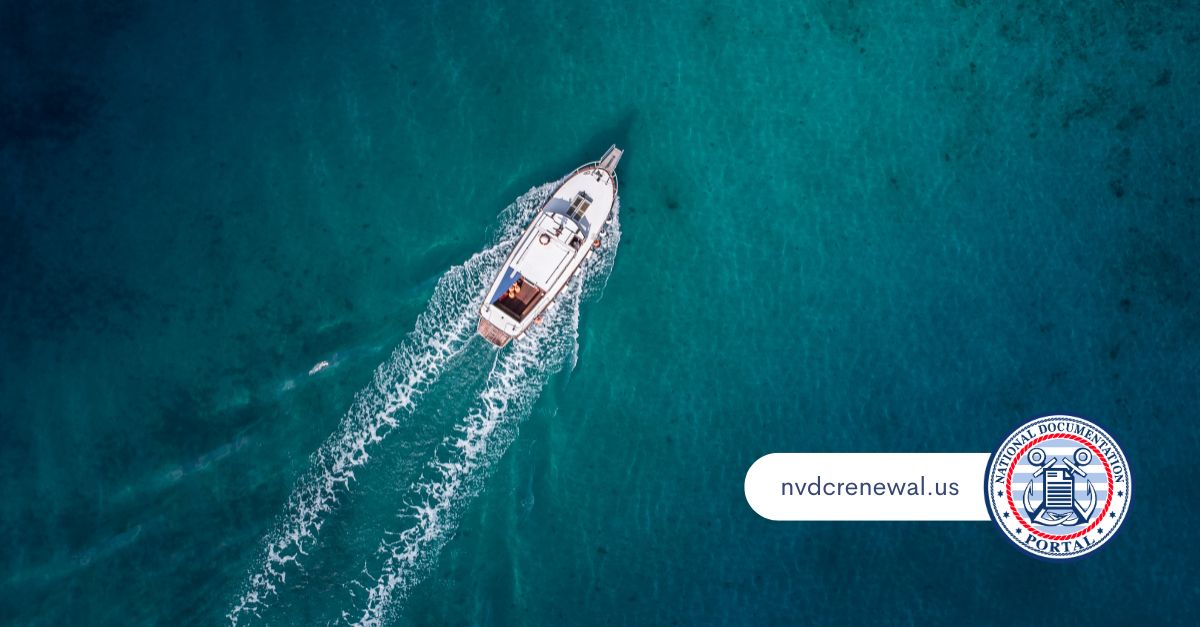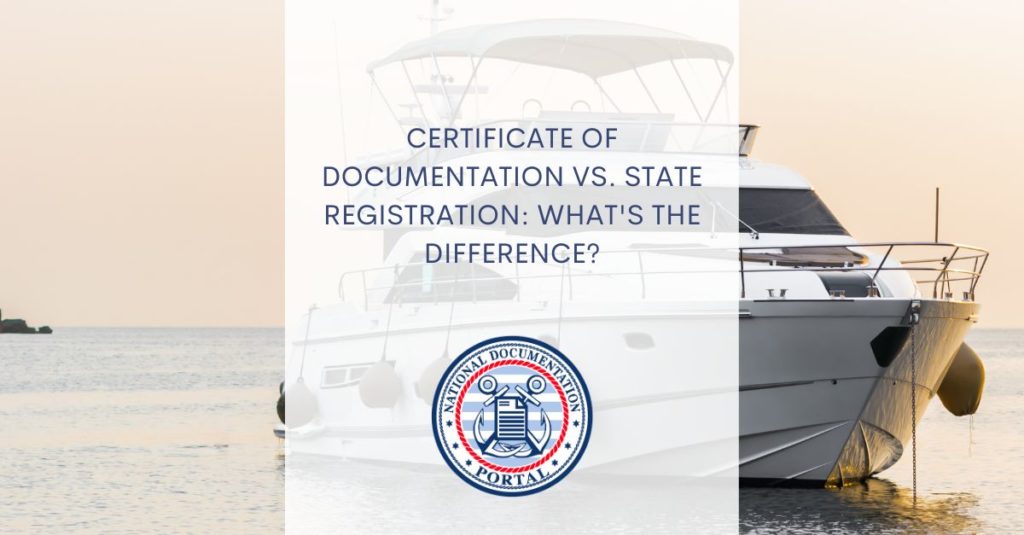When it comes to boat ownership, one of the first decisions you’ll need to make is how to legally register your vessel. Two common options in the United States are obtaining a Certificate of Documentation (CoD) from the National Vessel Documentation Center (NVDC) or opting for state registration. In this comprehensive guide, brought to you by Vessel Documentation Online, we’ll explore the differences between a CoD and state registration to help you make an informed choice for your boat.
The Basics: What Is a Certificate of Documentation?
A Certificate of Documentation, often referred to as “documentation” or simply “CoD,” is a federal form of vessel registration in the United States. It is issued by the U.S. Coast Guard and is primarily intended for vessels engaged in commercial activities, international trade, or fishing. However, recreational boat owners can also choose documentation for their vessels.
State Registration: A Common Alternative
State registration, on the other hand, is administered by individual states and is a more common choice for many boat owners. State registration typically applies to recreational boats used in inland or coastal waters within the state’s jurisdiction. The specific requirements and regulations for state registration vary from state to state.
Geographic Scope
One of the key differences between a CoD and state registration is their geographic scope.
Certificate of Documentation:
– Federal registration, allowing you to operate your vessel in both U.S. and international waters.
– Ideal for vessels engaged in international trade, fishing, or frequent coastal and offshore voyages.
State Registration:
– Limited to the state’s waters where the boat is registered.
– Typically more suitable for recreational boaters who stay within their state’s waters.
Legal Requirements
Certificate of Documentation:
– Requires compliance with federal regulations, including size restrictions, nationality requirements, and the payment of annual documentation fees.
– Must be renewed annually to maintain validity.
State Registration:
– Adheres to state-specific regulations, which may include safety equipment requirements, taxes, and state-specific fees.
– Renewal frequency and requirements vary by state.
Unique Identifier
Another notable difference lies in how vessels are identified under each registration option.
Certificate of Documentation:
– Uses an official Documentation Number (often referred to as “Doc Number”) as the vessel’s primary identifier.
– The vessel’s name must be unique on a national level but can be repeated in different states.
State Registration:
– Utilizes a state-issued registration number, often displayed on the vessel’s bow, as the primary identifier.
– The vessel’s name may not need to be unique nationally, but it must be unique within the state.
Coast Guard Record
For vessels with a CoD, the U.S. Coast Guard maintains a detailed record of the vessel, including ownership history and liens.
Certificate of Documentation:
– The USCG keeps comprehensive records of all documented vessels.
– Owners can request abstracts of title to verify ownership and other details.
State Registration:
– State records vary in detail, and not all states maintain comprehensive ownership records.
– The depth of information available to the public may differ from state to state.
Commercial vs. Recreational Use
The choice between a CoD and state registration can also depend on how you intend to use your vessel.
Certificate of Documentation:
– Commonly chosen for commercial activities, including charter fishing, cargo transportation, or international trade.
– Suitable for larger vessels engaged in commercial ventures.
State Registration:
– Often preferred for recreational boating, watersports, fishing, and day-to-day cruising.
– Well-suited for boats primarily used in state waters for leisure activities.
Taxation and Fees
The financial aspects of registration can also differ significantly between the two options.
Certificate of Documentation:
– Involves annual documentation fees payable to the U.S. Coast Guard.
– May have fewer state-specific taxes and fees.
State Registration:
– May include state-specific registration fees, taxes, and additional costs that vary from state to state.
– Registration costs depend on the state of registration.

Making the Right Choice
The decision between obtaining a CoD or opting for state registration depends on various factors, including your vessel’s use, geographic range, and individual preferences.
If you plan to operate your vessel in international waters, engage in commercial activities, or have a larger boat, a CoD may be the right choice. On the other hand, if you primarily use your boat for recreational purposes within your state, state registration is often more straightforward and cost-effective.
It’s essential to carefully assess your boating needs and research the specific requirements and regulations in your state before making a decision. Additionally, third-party agencies like Vessel Documentation Online can provide guidance and assistance to simplify the documentation or registration process, ensuring that you stay compliant with all relevant regulations, whether you choose a Certificate of Documentation or state registration.

